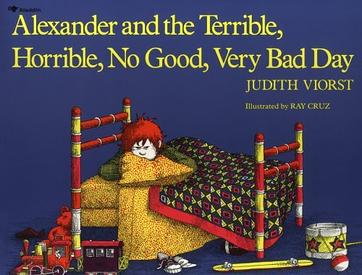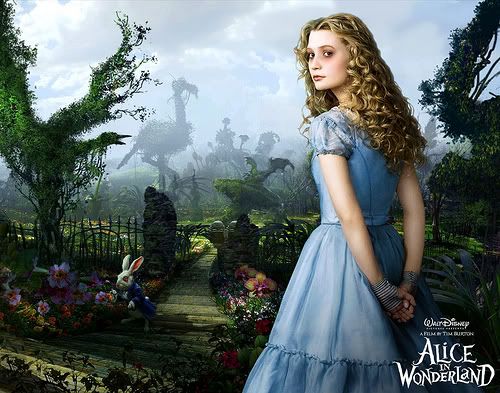
Startling and hallucinatory, Black Swan is a psychological horror story. Nina, played with every muscle by Nathalie Portman, achieves her lifelong dream of playing the Swan Queen in her ballet company's production of Swan Lake. Nina is a fragile perfectionist dominated by her live-in mother, a former dancer herself. Nina is already fraying at the edges from the physical pressures of professional ballet, so the elevation to her new role and the challenges, amplified by her director's sexual manipulations, lead her down the rabbit hole.
To succeed, we are told, one must give everything of themselves with abandon. Be free in the full sacrifice to one's craft. The greatest artists, athletes, whatever one admires, completely immerse themselves in their passion and are dedicated to perfection, n'est-ce pas? Nina releases her ego and identity in the complete submission of herself in the role of prima ballerina and she dissolves.
Directed by Darren Aronofsky, the film excels in this dissolution of reality. No other director achieves such a tangible, empathetic form of fear and nausea at the destruction of the human body. I left the theater after seeing Requiem for a Dream, thankful for my arms and for never having been so desperate or tragic in my life to succumb to prostitution. "Black Swan" makes me so grateful for the solidity of my body and my fingers and my bones and the entire thing. He achieves a rare squeamish terror that directors of Saw films should envy.

Furthermore, the disorientation of the climax and finale is complete and unpredictable. Unlike a film such as "Shutter Island", there are no explanations drawn out for the audience. The events swirl around Nina like the hallucinations they are. I've never seen such an accurate portrayal of the effects of Ecstasy on film. That alone is quite impressive. Nina's identity refracts like shattered mirrors as her self becomes her only real human connection and as she disintegrates into her new role.
Her body, her ultimate tool, rejects her and transforms itself, or perhaps she unconsciously transforms herself. Like a neurotic twitch that one cannot restrain, her skin and fingers and blood begin to alter against her will. A ballerina must be a master of her body, and her bulimia enables an illusion of physical and psychological control.
She is fragile and pale, like an egg, and as the pressure increases she cracks in a messy, messy way. It's exhilarating and spectacular and queasy and actually scary.
The casting is fantastic with the former prima, whom Nina replaces, played by Winona Ryder, and the new challenger played by Mila Kunis, who I am delighted to see in a drama. She is fantastic and utilizes her charisma to seduce with danger, rather than self-deprecating humor. The director of the company is slyly portrayed by Vincent Cassel using his sexuality and authority to embody that special kind of manipulative, seductive machismo. Rounding out the cast is Deborah Winger as the mother. She is quite terrifying yet believable. She resists the caricature of the failed mother living through her daughter and deftly plays the mind games of the most brilliant passive-aggressive matriarchs. Nathalie Portman deserves award considerations. She carries the film. Her character is nearly hysterical through the whole film yet she never becomes shrill or irritating. At the open of the film, I was saddened that such a good actress should immediately call to mind the stilted dialogue of Padme from Star Wars. To my relief she obliterated that character from my mind with her passion in this new role.

I will say as a draw back that the sound effects, while effective, were occaisionally over done and comical at first. Such a hallucinatory film is difficult for an audience to transition into at first and the sound effects just felt goofy for the first quarter of the film. Even towards the end, I found them heavy handed.
The pacing of the film was excellent and reminded me of the great psychological thrillers of Hitchcock. I am extremely impressed and thrilled that Aronofsky has returned to such dream-like territory. He is, in my opinion, at his best and most unique when creating a whirl-wind of the mind. His dryer character drama, "The Wrestler" was epic and poignant. But it lacked the joy and magic of creation that Aronofsky holds. If you are capable of extraordinary flights of fantasy, I'm not sure why you would ever tell such a miserable story, no matter how well told or illuminating it is. It'd be like Terry Gilliam directing Erin Brockovich. Why? And I think The Wrestler was a fantastic story of great depth and interest. I'm just so thrilled to get more from Aronofsky's imagination.
There is so much more I could say about the body manipulation inherent in such religious ferocity and the self-destructive commitment to success and work as a form of enslavement. What is success for? Is anyone really remembered in our ADD society? Are professional athletes any different than this woman crushing her toes to be beautiful? Is the drive for success always based in a lack of self-confidence and a frailty of identity?
Awesome. Scary. Trippy. Cool.






















